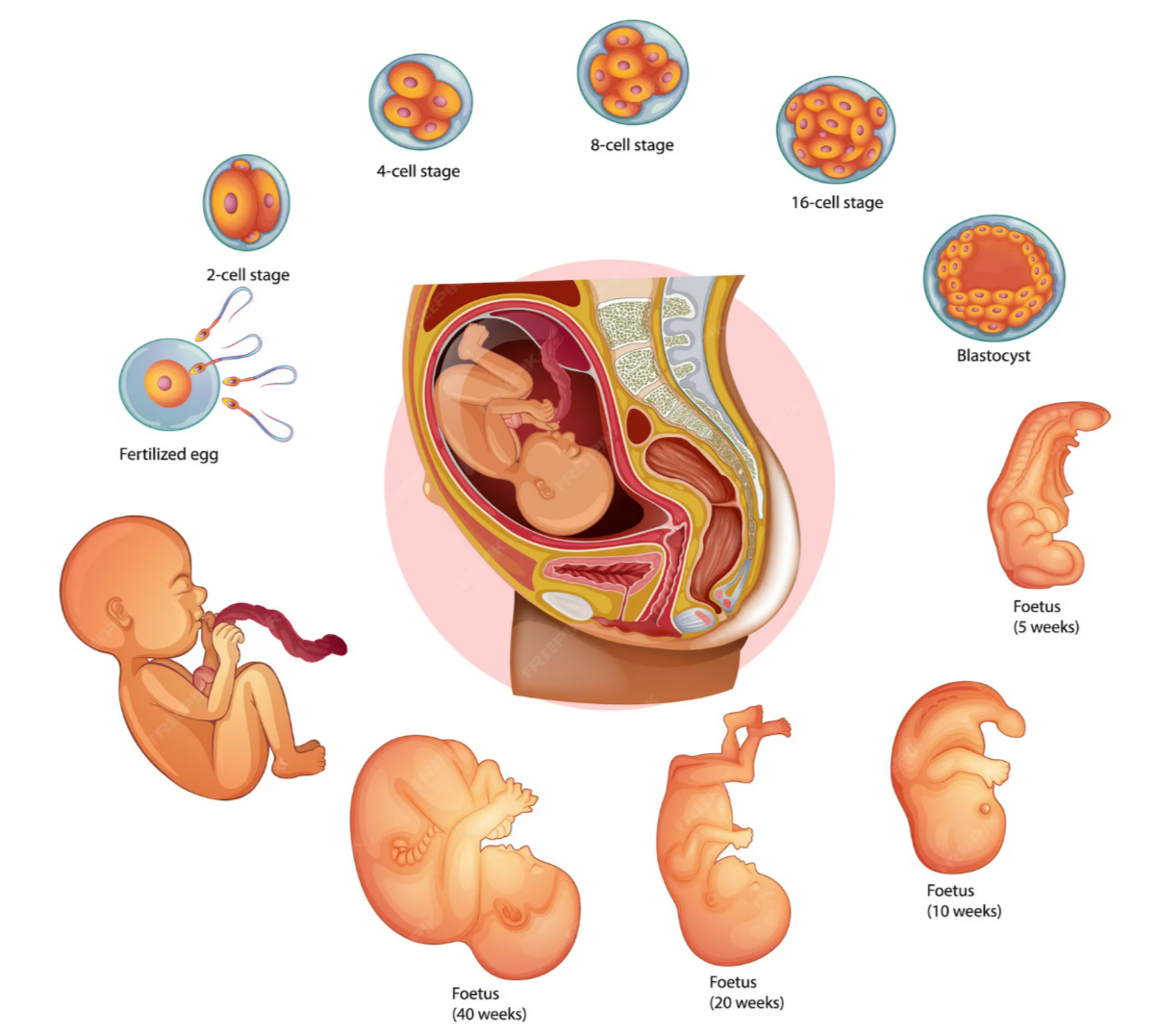Edexcel iGCSE Biology-4.2 Gametes & Fertilisation- Study Notes- New Syllabus
Edexcel iGCSE Biology-4.2 Gametes & Fertilisation- Study Notes- New syllabus
Edexcel iGCSE Biology-4.2 Gametes & Fertilisation- Study Notes -Edexcel iGCSE Biology – per latest Syllabus.
Key Concepts:
4.2 understand that fertilisation involves the fusion of a male and female gamete to produce a zygote that undergoes cell division and develops into an embryo
Fertilisation and Embryo Development
🌱 Introduction

Fertilisation = joining (fusion) of male gamete and female gamete.
It restores full chromosome number and forms a zygote.
🧬 Fertilisation Process
- Male gamete: sperm cell (in animals) / pollen grain (in plants).
- Female gamete: egg cell or ovum (in animals) / ovule (in plants).
- Fusion of nuclei → forms a zygote (first single cell of new organism).
🌟 From Zygote to Embryo
- Zygote formation: single fertilised cell.
- Cell division (mitosis): zygote divides repeatedly.
- Embryo formation: ball of cells develops.
- Differentiation: cells become specialised for different functions.
📊 Summary Table
| Stage | What Happens |
|---|---|
| Fertilisation | Fusion of male + female gametes → zygote |
| Zygote | First diploid cell formed after fertilisation |
| Embryo | Zygote divides by mitosis → ball of cells → differentiation |
| Development | Embryo grows into foetus (animals) or seed (plants) |
📌 Quick Recap
– Fertilisation = fusion of gametes.
– Produces a diploid zygote.
– Zygote divides by mitosis → forms embryo.
– Embryo → develops into foetus (animals) / seed (plants).
